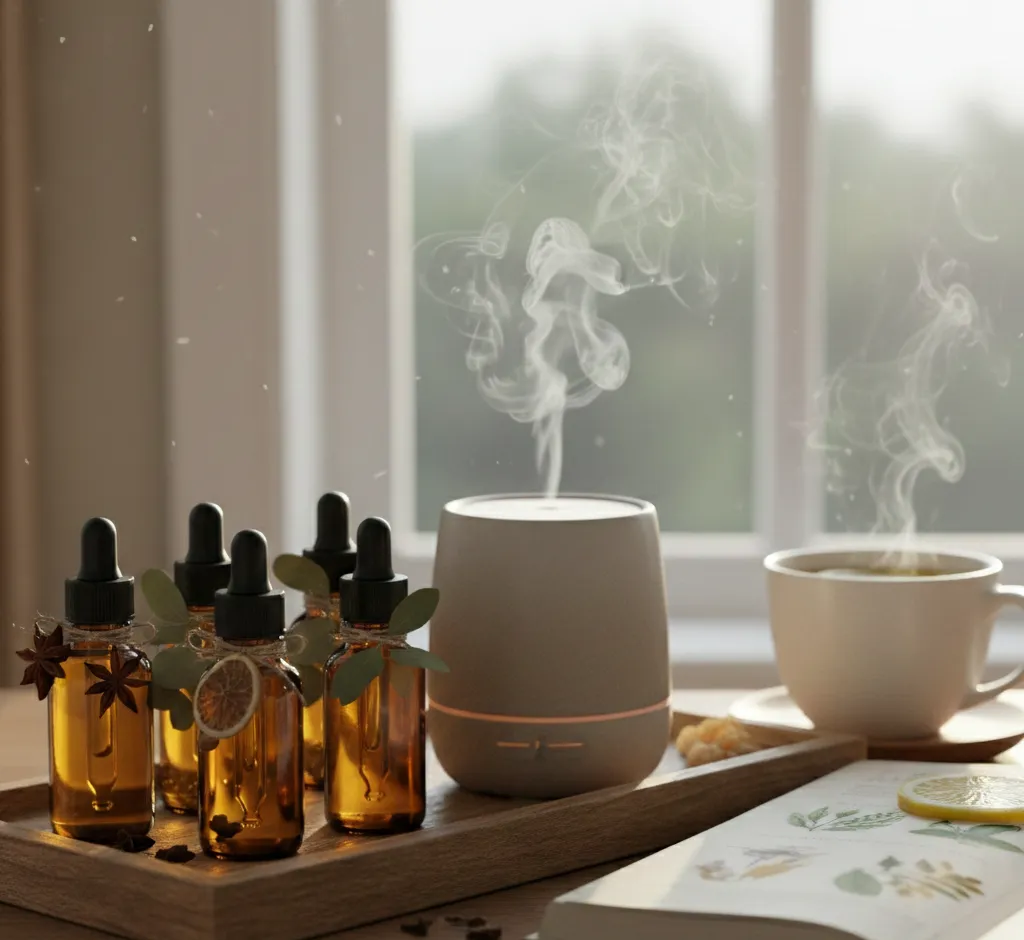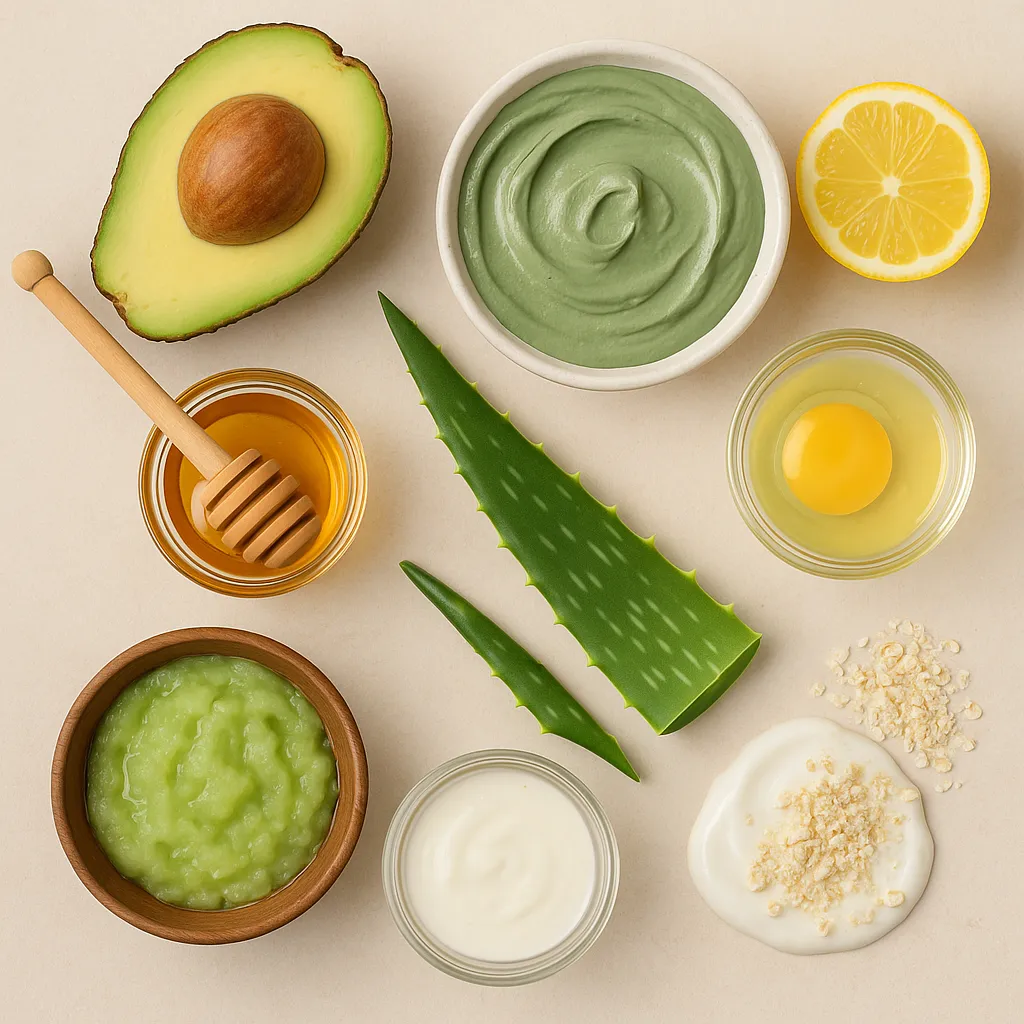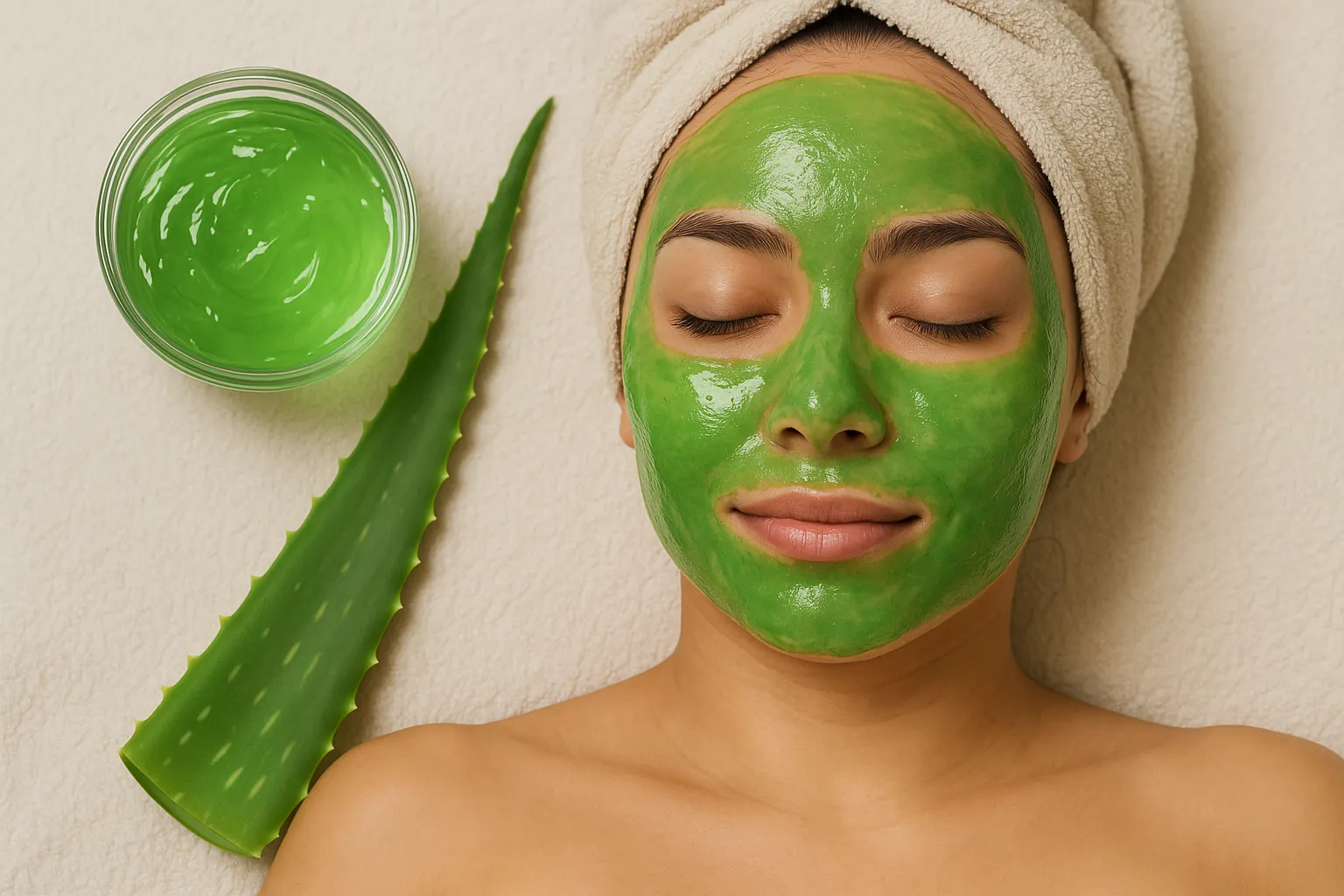Aromatherapy Allies: The Definitive Guide to Essential Oils for Immune Support
Discover the most effective essential oils like Tea Tree, Clove, and Frankincense for natural immune support. Learn safe, science-backed methods for diffusion and topical use to boost your body's defenses.

🛡️ Boosting Your Body's Defenses Naturally: Essential Oils for Immune Support
In today's world, maintaining a strong and resilient immune system is more important than ever. While a balanced diet, regular exercise, and adequate sleep form the foundation of good health, many people are turning to natural allies to enhance their body's defenses. Among the most potent of these natural resources are essential oils, concentrated plant extracts renowned for their therapeutic properties. This comprehensive guide will delve into the science and application of essential oils specifically for immune support, offering practical advice on how to safely and effectively integrate them into your wellness routine.
🔬 The Science Behind Essential Oils and Immunity
Essential oils are complex chemical compounds that possess a range of biological activities. Their efficacy in supporting the immune system stems from several key properties:
- Antimicrobial Power: Many essential oils, such as Tea Tree and Oregano, contain compounds that have been shown to inhibit the growth of bacteria, viruses, and fungi.
- Anti-inflammatory Effects: Chronic inflammation can suppress immune function. Oils like Frankincense and Turmeric contain components that help modulate the body's inflammatory response.
- Antioxidant Activity: Oils rich in antioxidants, like Clove and Lemon, help neutralize free radicals, protecting cells from oxidative stress and supporting overall cellular health.
- Stress Reduction: Since stress hormones like cortisol can significantly compromise the immune system, the calming effects of oils like Lavender and Bergamot play a crucial, indirect role in immune support.
- Respiratory Support: Oils like Eucalyptus and Peppermint can help clear respiratory passages, making it easier for the body to manage seasonal challenges.
✨ Top Essential Oils for a Robust Immune System
While many oils offer immune benefits, some stand out for their exceptional properties. Here are the powerhouse oils you should consider:
1. Clove Bud (Syzygium aromaticum)
Key Compound: Eugenol
- Clove oil boasts an incredibly high concentration of antioxidants, making it a formidable shield against oxidative damage.
- It exhibits powerful antimicrobial properties, historically used to purify environments and support wellness during flu season.
2. Lemon (Citrus limon)
Key Compound: Limonene
- Lemon oil is a refreshing choice, known for its ability to cleanse and purify the air and surfaces.
- It can help stimulate white blood cell production, enhancing the body's ability to fight off pathogens.
- Its uplifting aroma also helps combat fatigue, which often accompanies a weakened state.
3. Tea Tree (Melaleuca alternifolia)
Key Compound: Terpinen-4-ol
- A staple in natural medicine, Tea Tree oil is widely studied for its potent antibacterial, antiviral, and antifungal actions.
- It's excellent for topical application (when properly diluted) to cleanse and soothe the skin and respiratory system.
4. Oregano (Origanum vulgare)
Key Compound: Carvacrol and Thymol
- Oregano oil is one of the most powerful natural antibiotics available, primarily due to its high Carvacrol content.
- Due to its potency, it must be used with extreme caution, always heavily diluted, and often best reserved for short-term, targeted support.
5. Eucalyptus (Eucalyptus globulus/radiata)
Key Compound: 1,8-cineole
- The signature compound, 1,8-cineole, is a well-known expectorant, making Eucalyptus invaluable for respiratory health.
- By helping to keep the respiratory system clear, it indirectly supports the immune system's overall functioning.
6. Frankincense (Boswellia carterii/serrata)
Key Compound: Monoterpenes and Sesquiterpenes
- Frankincense is highly valued for its profound anti-inflammatory properties, helping to balance immune responses.
- It has deep psychological benefits, promoting relaxation and reducing stress, which, as noted, is crucial for immune resilience.
💨 Effective Ways to Use Essential Oils for Immunity
Safety and proper dilution are paramount when using essential oils. Always purchase high-quality, pure oils from reputable sources.
1. Aromatic Diffusion
This is arguably the safest and most effective method for overall immune support, as it allows the oils to be inhaled and permeate the environment.
- Recipe: Immunity Shield Blend: Combine 3 drops of Lemon, 2 drops of Clove, and 2 drops of Eucalyptus oil in a cool-mist diffuser. Run for 30–60 minutes in your living area or office daily.
- Tip: Diffusing helps clean the air of airborne pathogens and elevates mood.
2. Topical Application (Massage and Rubs)
Applying diluted oils to the skin allows them to be absorbed into the bloodstream. Focus on pulse points, the chest, the back of the neck, and the soles of the feet.
- Safety First: Always dilute essential oils in a carrier oil (such as Fractionated Coconut Oil, Jojoba, or Almond Oil) before applying to the skin. A general safe dilution for adults is 1–3% (e.g., 6–18 drops of essential oil per 30 ml/1 oz of carrier oil).
- Recipe: Daily Defense Roll-On: Mix 5 drops of Tea Tree, 3 drops of Frankincense, and 2 drops of Lemon into a 10ml roller bottle and fill the rest with a carrier oil. Apply to the soles of your feet every morning.
- Chest Rub for Congestion: Create a potent chest rub by adding 10 drops of Eucalyptus and 5 drops of Peppermint oil to 2 tablespoons of Shea Butter or petroleum jelly. Apply gently to the chest and upper back.
3. Steam Inhalation (For Respiratory Support)
Direct inhalation is excellent for clearing the sinuses and respiratory tract during periods of seasonal challenge.
- Fill a bowl with steaming (but not boiling) water.
- Add 1–2 drops of Eucalyptus or Tea Tree oil.
- Place a towel over your head, enclosing the bowl, and carefully breathe in the steam for 5 minutes. Keep your eyes closed.
- Caution: Do not use this method on children or those with asthma without consulting a professional, as the heat and concentration can be intense.
4. Surface and Air Cleansing Spray
A simple spray can help sanitize surfaces and freshen the air, reducing the overall pathogen load in your environment.
- Mix 10 drops of Lemon, 5 drops of Clove, and 5 drops of Cinnamon Bark essential oils into a 120ml (4 oz) spray bottle filled with distilled water and a splash of witch hazel (to help emulsify the oils). Shake well before each use.
🛑 Important Safety Considerations and Dilution Guide
While essential oils are natural, they are highly concentrated and must be used responsibly. Misuse can lead to skin irritation, sensitization, or more serious health issues.
- 0.5% Dilution (Sensitive Skin/Children): 3 drops
- 1% Dilution (Facial/Daily Use): 6 drops
- 2% Dilution (General Body Massage): 12 drops
- 3% Dilution (Targeted Support/Acute Use): 18 drops
- Patch Test: Always perform a patch test when trying a new oil topically. Apply a small, diluted amount to an inconspicuous area of skin and wait 24 hours for any reaction.
- Pregnancy and Children: Use extreme caution and consult with a certified aromatherapist or healthcare provider before using essential oils on children or if you are pregnant or breastfeeding. Certain oils are contraindicated.
- Internal Use: Unless specifically advised and monitored by a qualified healthcare professional, internal consumption of essential oils is strongly discouraged. It can be toxic and may damage mucous membranes.
- Photosensitivity: Citrus oils (especially Lemon, Bergamot, Grapefruit, and Lime) are often photosensitive. Avoid sun or UV exposure on skin where these oils have been applied for at least 12–18 hours.
🌿 Integrating Essential Oils into a Holistic Wellness Plan
Essential oils are powerful tools, but they are not a substitute for a comprehensive wellness strategy. For true immune support, they should be used in conjunction with other healthy habits:
- Nutrition: Prioritize whole foods, rich in vitamins C, D, and Zinc.
- Hydration: Drink plenty of water to help flush toxins.
- Sleep: Aim for 7–9 hours of quality sleep nightly, as sleep deprivation is a major immune suppressant.
- Stress Management: Incorporate practices like meditation, deep breathing, and the relaxing diffusion of essential oils (like Lavender or Vetiver) to keep cortisol levels low.
By understanding the potent synergy between essential oils and your body's innate defenses, you can harness the gifts of nature to foster a stronger, more resilient immune system year-round. Start with simple, safe diffusion and gradually explore the topical applications to build a natural defense strategy that works for you.
❓ Frequently Asked Questions About Immune-Boosting Oils
Q: Are essential oils safe to diffuse around pets?
A: Caution is necessary. Cats, especially, lack the enzymes to properly metabolize many essential oil compounds, making them susceptible to toxicity. Always diffuse in a well-ventilated area, keep the door open, and ensure pets can leave the room. Avoid diffusing potent oils like Pine, Tea Tree, and high-phenol oils (Clove, Oregano) around small animals.
Q: How long should I diffuse essential oils for immune support?
A: For therapeutic benefit without overloading your system or the air, diffuse for 30–60 minutes at a time, taking breaks in between. Continuous diffusion is generally unnecessary and can lead to nasal fatigue or sensitivity.
Q: Can I mix essential oils with a humidifier?
A: No. Only use essential oils in diffusers specifically designed for them (usually ultrasonic or nebulizing diffusers). Placing essential oils directly into a humidifier's water reservoir can damage the plastic components and potentially release harmful compounds into the air, as it's not designed to handle the concentration.


